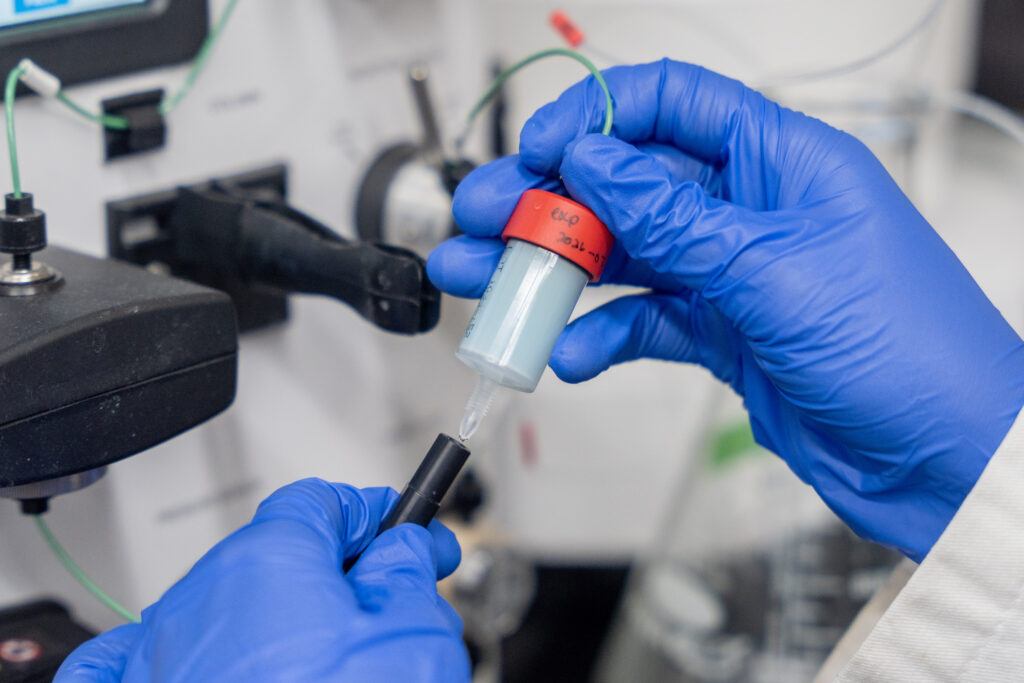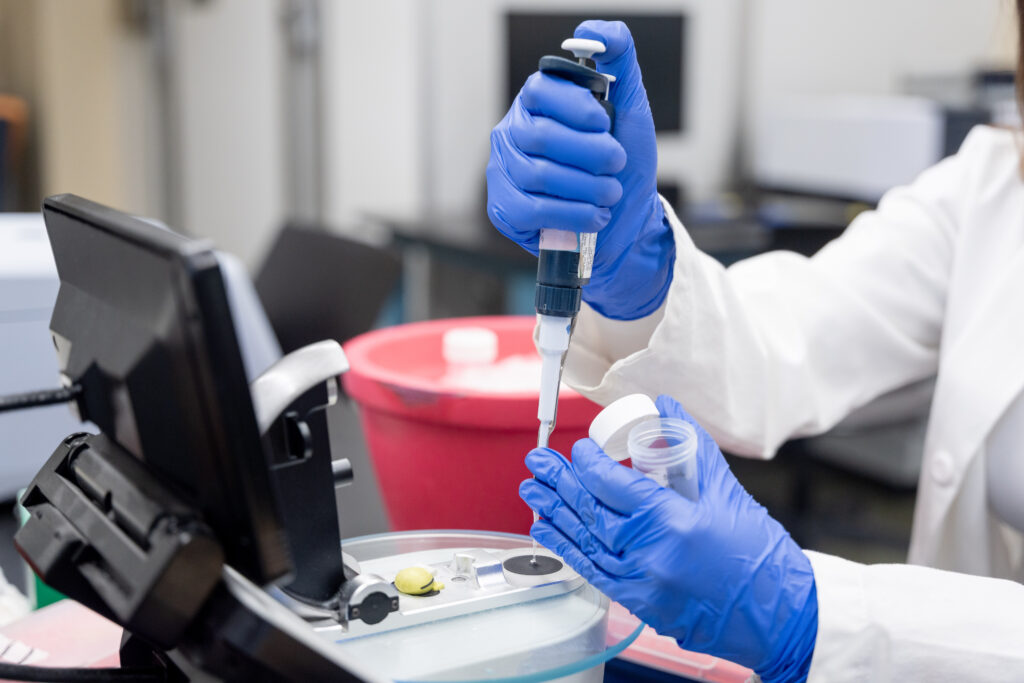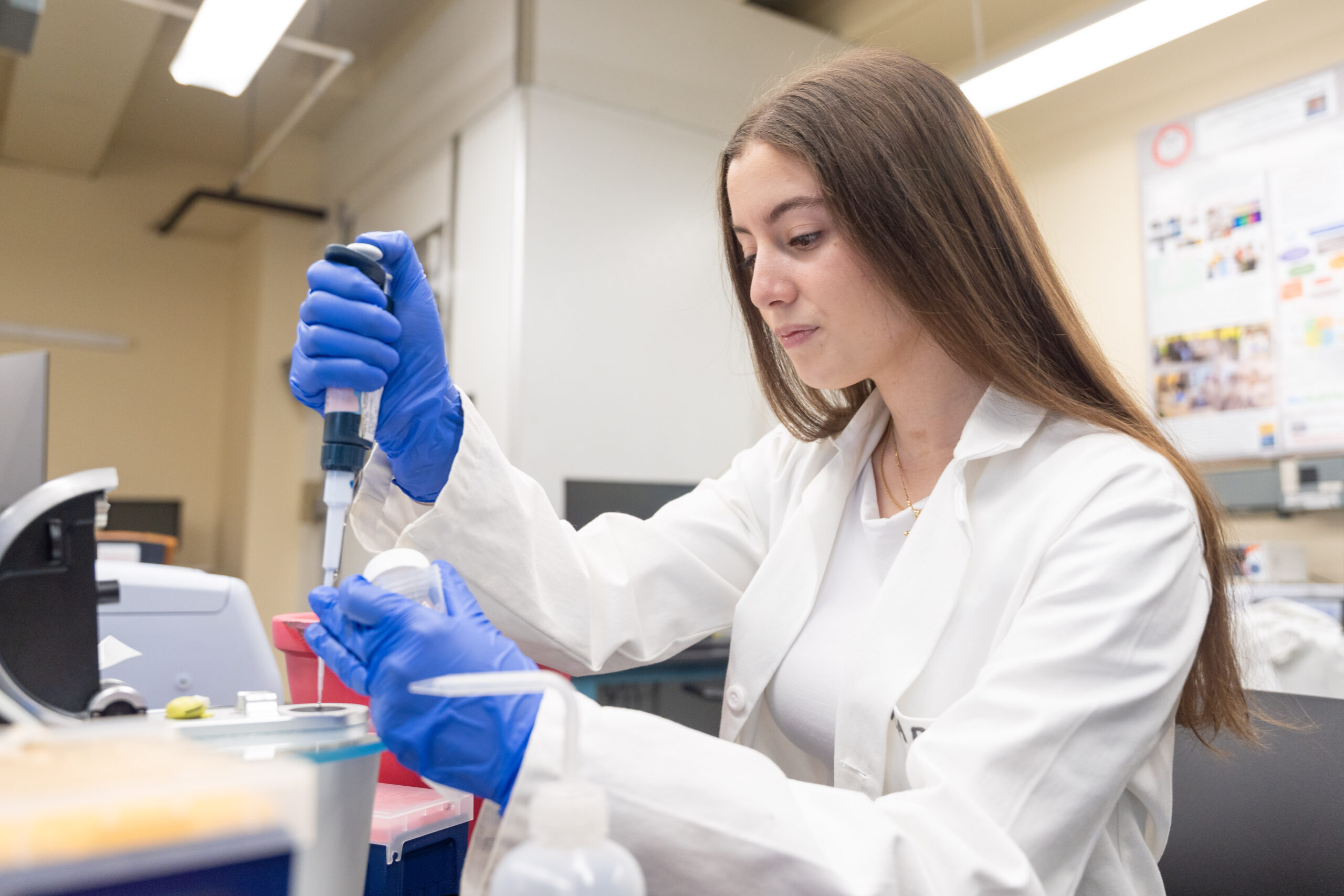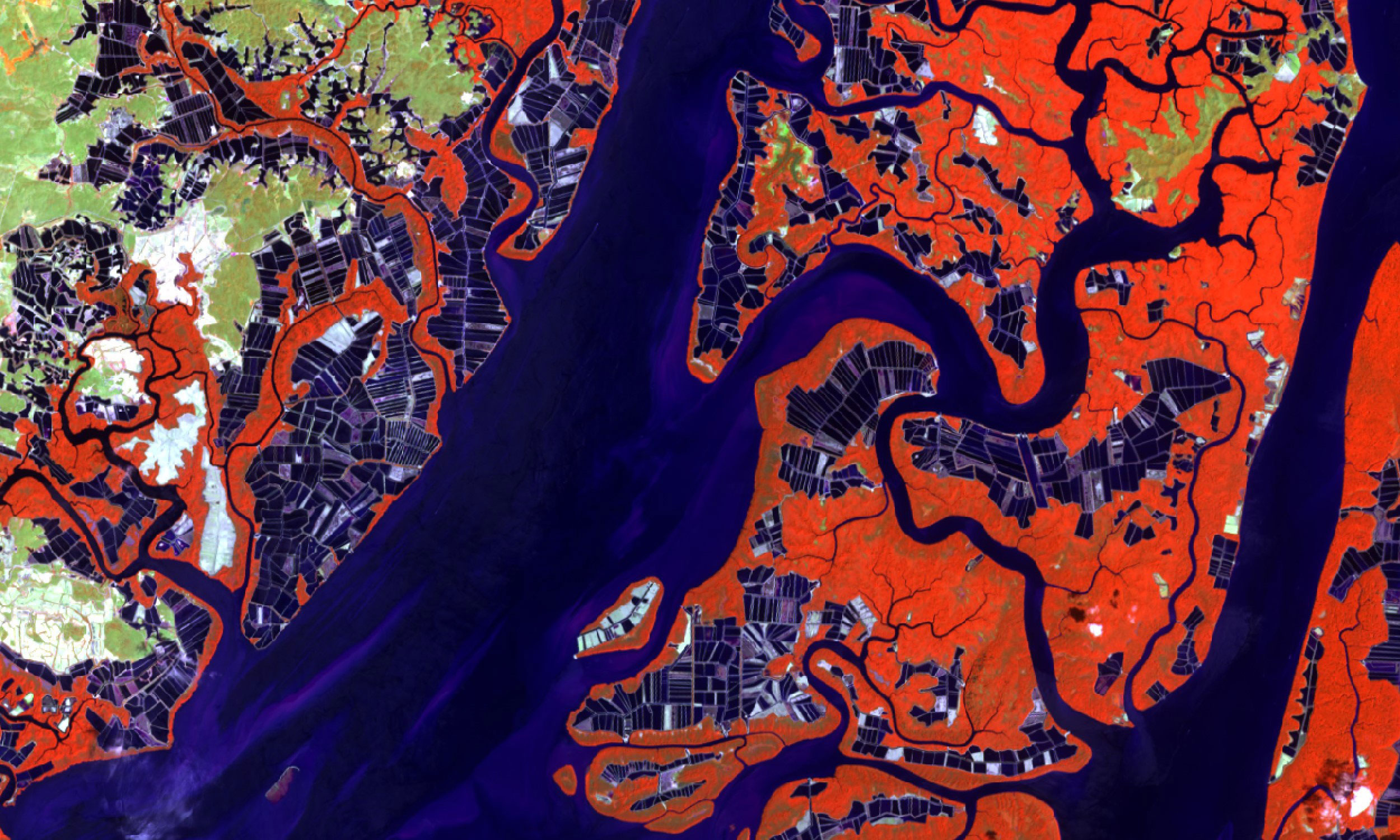In the lab, Marina Sako ’26 investigates DNA ‘breakage’
Marina Sako ’26 recalls wondering as a child how broken bones “know” to put themselves back together. This early fascination gave her a thirst to know how the human body operates on a molecular level, and eventually led her to study biochemistry and molecular biology.
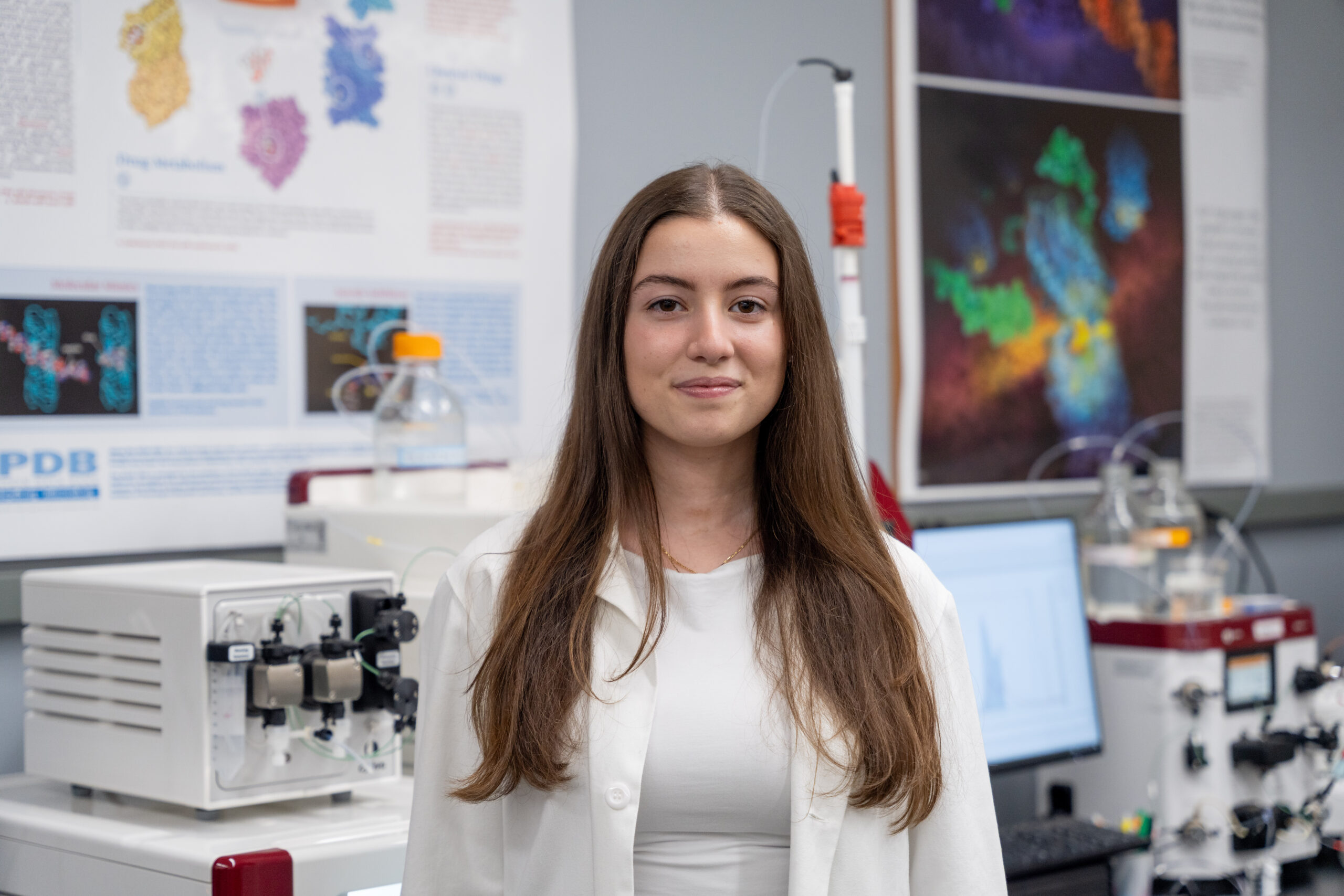
Sako has had research positions and directed studies in chemistry Professor Don Spratt’s Lab for three years. Her work is centered around protein chemistry, specifically the study of double-stranded DNA break repair mechanisms. Double-stranded DNA (dsDNA) breakage can happen for any number of reasons — a body’s exposure to ionizing radiation is a severe example. When double-stranded DNA breaks, it leads to something called genomic instability, which can ultimately result in the formation of cancer cells. However, our bodies have a natural reaction to a DNA break — our system conglomerates a mass of what is called repair proteins and delegates them to the localized area to remedy the breakage. The purpose of Sako’s work is to document that reaction and the protein relationships within.
“The proteins that join the repair pathway are known and categorized, but the interactions between one protein and another are not,” she says.
Double-stranded DNA breakage cannot be prevented.
“In theory, it can happen at any time,” she says. “I am trying to figure out how these proteins coordinate with one another and if phosphorylation affects coordination. “Essentially, by gaining a deeper understanding of the pathway and how it works, we can aid in the development of cancer therapeutics that target the dsDNA repair pathway.”
Sako, who spends up to 30 hours per week in the lab, is currently analyzing NMR data and finds endless excitement in her work.
“There is never a dull moment,” she says. “I don’t think enough people realize that science can be creative. Lots of things go wrong, and you have to learn to adapt in a split second to continue your experiment. But when you find something in your data, it is the best feeling.”
Sako heard about the Spratt Lab while taking Chemistry 101 with Professor Luis Smith, the Chemistry Department chair, as a first-year Clarkie. Every Friday, Smith invited other professors to talk to his students about their research and Spratt was one of them. Sako knew the Spratt Lab was going to be an instant fit, not only because of her interest in its research subject, ubiquitin proteins, but also because of Spratt’s commitment to giving students the freedom to discover their own research processes.
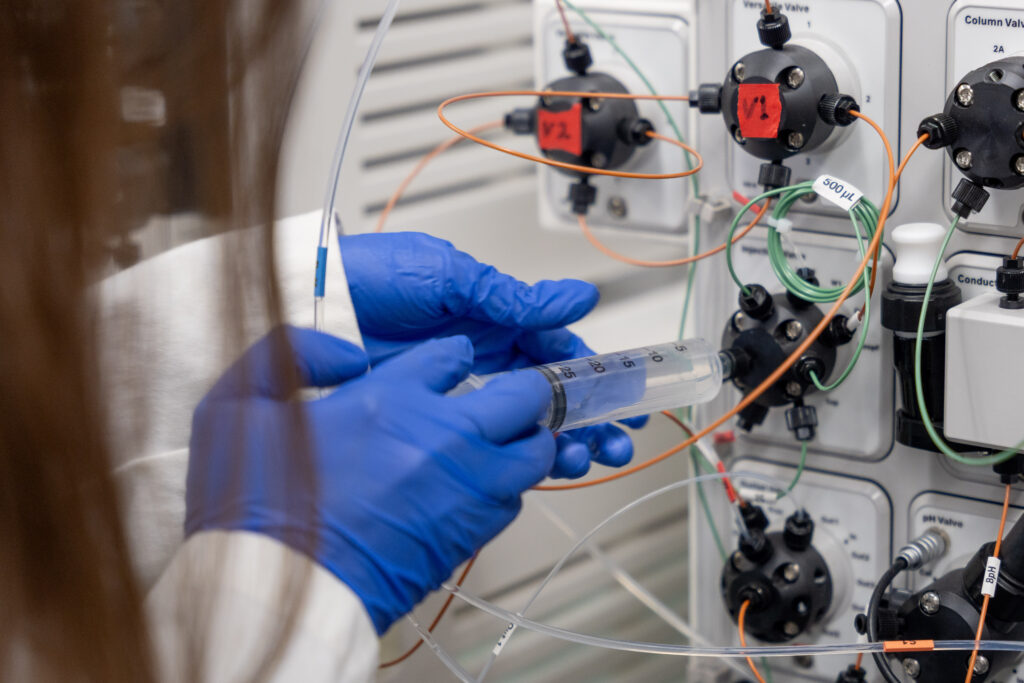
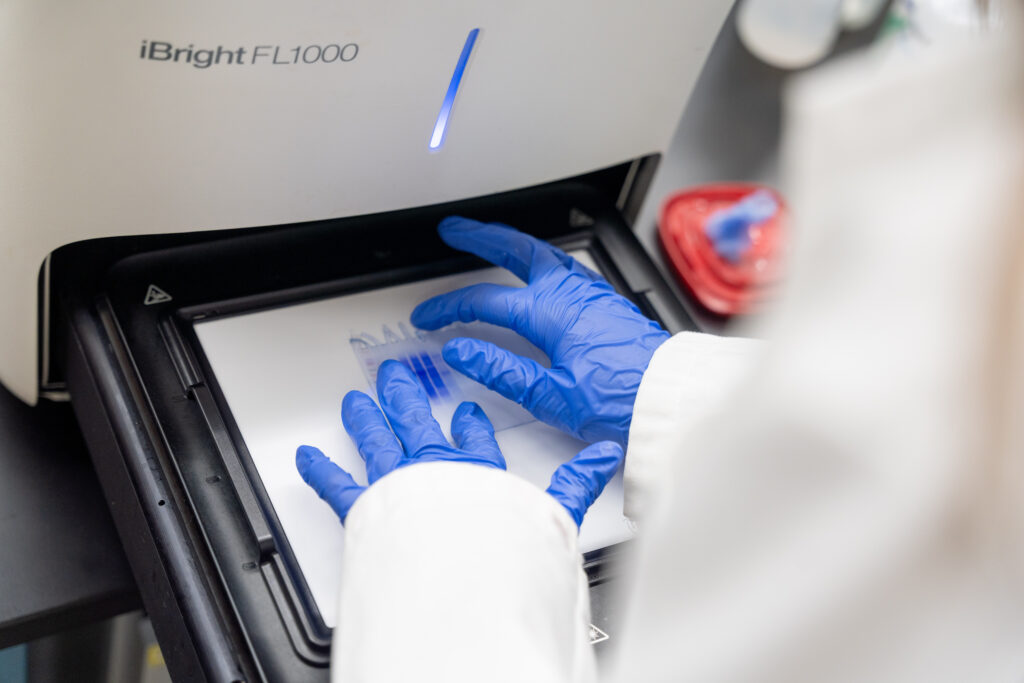
An important lesson throughout her years in the lab, Sako says, is discovering that there isn’t one simple path to finding the solutions to your research problems. “You have to be adaptable, comfortable with change, and a quick learner,” she says.
Sako and fellow members of her lab are headed to San Francisco at the end of June to present their individual research posters at the Protein Society annual symposium, which highlights research in the protein biochemistry field. The students submitted their research abstracts to a review board and were selected out of many applicants to exhibit. Sako also presented at last year’s conference in Vancouver.
“People often assume that working in science means long hours and no fun, but that hasn’t been my experience,” she says. “It’s actually a really exciting and supportive environment, and I get to do what I love alongside people who are just as passionate.”
Sako, a Worcester native, was excited to attend Clark because she could stay close to her family while exploring her academic interests.
“I don’t know of any other school in this area that has the research opportunities that we do here,” she says. “I was thankful to jump into research as soon as I did because it gave me a clear path toward what I want to do from the very start of my undergraduate journey.”
Sako is applying to the accelerated 4+1 biochemistry program, where she hopes she can continue her work with protein chemistry in the Spratt Lab. She plans on a career in protein chemistry and oncology research.
